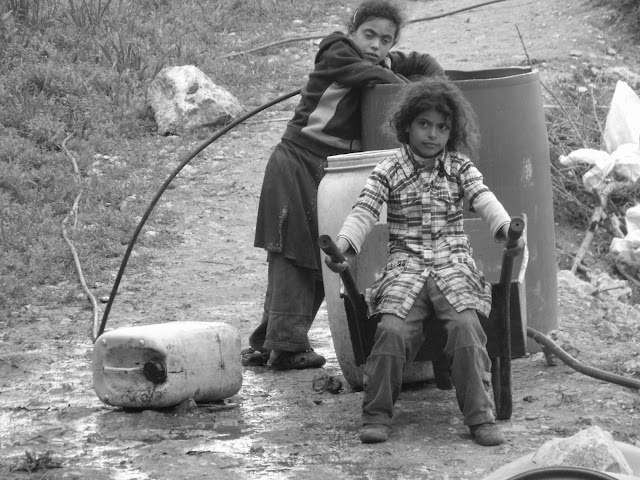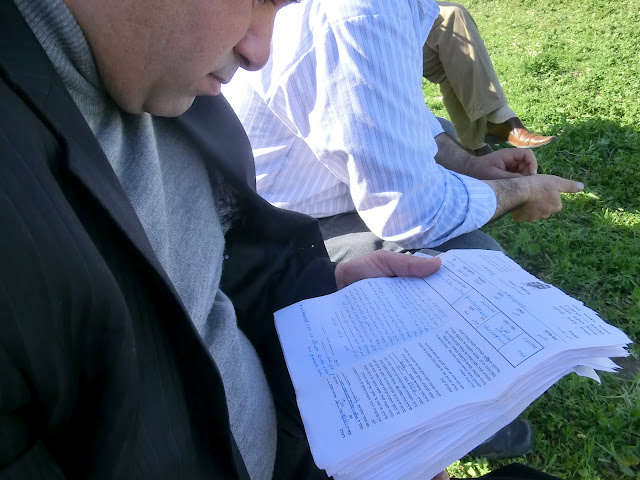Tag: Bedouin
-
The strangulation of a village
by Sylvia 10 March 2012 | International Solidarity Movement, West Bank Sheikh Nasri looks resigned as he describes his home as “the most terrorised village in the country”. With 34,000 uprooted trees in the last two years and some 4,800 dunams of land stolen, the village of Al Jab’a has little to smile about. Eighteen…
-
Tubas: Israel robs the Jordan Valley dry
by Jonas Weber 8 February 2012 | International Solidarity Movement, West Bank On Saturday 5 February a delegation of activists from the International Solidarity Movement (ISM) went on a tour in the municipality of Tubas, 30 minutes by car to the south east of Nablus. At the municipality building of Tubas we were greeted by Marwan E. Toubassi,…


